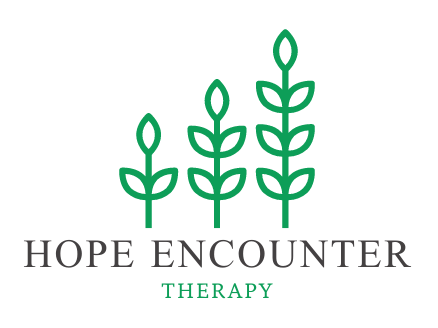When it comes to healing from trauma, many people wonder whether they should turn to medication, therapy, or a combination of both. Eye Movement Desensitization and Reprocessing (EMDR) therapy has gained significant attention as an effective trauma treatment, but how does it compare to medication? While both approaches offer benefits, they work in very different ways. This blog will explore the advantages and limitations of both EMDR therapy and medication, helping you determine which option may be the best fit for your healing journey.

Understanding Trauma and Its Effects
Before diving into treatment options, it’s important to understand how trauma impacts the brain and body. Traumatic experiences, whether from childhood neglect, abuse, accidents, or other distressing events, can become stored in the nervous system in ways that affect emotional regulation, memory, and overall well-being. Many trauma survivors struggle with symptoms such as anxiety, flashbacks, panic attacks, emotional numbness, and difficulty maintaining relationships. Effective treatment must address both the psychological and physiological aspects of trauma.
The Role of Medication in Trauma Treatment
Medication is commonly prescribed to help manage trauma-related symptoms, particularly for individuals diagnosed with post-traumatic stress disorder (PTSD), anxiety disorders, or depression. The most frequently used medications include:
- Selective Serotonin Reuptake Inhibitors (SSRIs) – Medications like Prozac, Zoloft, and Paxil help regulate mood and reduce anxiety.
- Serotonin-Norepinephrine Reuptake Inhibitors (SNRIs) – Drugs such as Effexor and Cymbalta target both serotonin and norepinephrine. Both of which can help with both anxiety and depression.
- Benzodiazepines – Medications like Xanax and Ativan provide short-term relief for severe anxiety but can be habit-forming.
- Prazosin – Often prescribed to reduce nightmares and improve sleep for individuals with PTSD.
Limitations of Medication
While medication can be a valuable tool for stabilizing symptoms, it does not address the root cause of trauma. Here are some key drawbacks:
- Does Not Process Trauma – Medication can reduce symptoms, but it does not help the brain reprocess traumatic memories.
- Potential Side Effects – Common side effects include drowsiness, weight gain, nausea, sexual dysfunction, and emotional blunting.
- Dependency Concerns – Some medications, especially benzodiazepines, carry a risk of dependency and withdrawal symptoms.
- Limited Long-Term Efficacy – While some people benefit from long-term medication use, others may find that their symptoms return when they stop taking the medication.

How EMDR Therapy Works
EMDR therapy is a structured, evidence-based psychotherapy designed to help individuals process and heal from traumatic experiences. Unlike traditional talk therapy, EMDR uses bilateral stimulation (eye movements, tapping, or auditory tones) to help the brain reprocess traumatic memories and integrate them in a healthier way.
Benefits of EMDR
- Addresses the Root Cause of Trauma – Unlike medication, EMDR helps individuals directly process distressing memories, reducing their emotional intensity over time.
- Lasting Results – Many clients find that after completing EMDR therapy, their symptoms are significantly reduced or eliminated, even without ongoing treatment.
- No Need for Long-Term Medication Use – Since EMDR fosters deep healing, individuals often do not need to rely on medication for symptom management.
- Improves Emotional Regulation – EMDR helps individuals gain control over their emotions, reducing hypervigilance, flashbacks, and panic responses.
- Enhances Self-Empowerment – Many people who complete EMDR therapy report a stronger sense of resilience and self-worth.
Limitations of EMDR
- Not a Quick Fix – While EMDR often produces faster results than traditional talk therapy, healing still takes time and commitment.
- Requires Facing Traumatic Memories – Some individuals may find the process emotionally intense, though EMDR therapists guide clients in a safe, controlled manner.
- May Not Be Accessible to Everyone – EMDR should be done with a trained professional, and not all therapists specialize in this approach.
When is EMDR the Better Choice?
EMDR is often the preferred treatment when:
- Addressing the root cause of trauma, rather than just managing symptoms, is important to you.
- Medication hasn’t provided enough relief, or you prefer a non-medication approach.
- Distressing memories, flashbacks, or nightmares from past trauma continue to affect your daily life.
- You want a therapy that offers long-lasting benefits.
Should You Combine EMDR with Medication?
For some individuals, the best approach is a combination of both medication and EMDR therapy. Medication can provide temporary relief from overwhelming symptoms, allowing individuals to engage more fully in the EMDR process. Once trauma is processed, many people find they can reduce or discontinue medication under medical supervision.
Final Thoughts
While medication can be helpful for symptom management, EMDR offers a powerful path to true trauma healing by addressing the underlying causes of distress. If you feel stuck in your healing journey or are looking for a long-term solution, EMDR therapy may be the right choice for you. Working with a qualified EMDR therapist at Hope Encounter Therapy can help you reclaim your life and move beyond trauma in a way that medication alone cannot achieve.

Begin Healing From Your Trauma With EMDR Therapy in Raleigh, NC
If you’re ready to heal from trauma without relying on medication, EMDR therapy in Raleigh, NC can help you process painful memories and reclaim your peace. At Hope Encounter Therapy, we provide a compassionate, research-backed approach to trauma recovery tailored to your unique needs. Take the first step toward lasting healing—schedule your consultation today. Follow these three simple steps to get started:
- Contact us for a free consultation.
- Meet with one of our skilled EMDR therapists.
- Begin to reclaim your peace!
Additional Services Offered at Hope Encounter Therapy
At Hope Encounter Therapy, we are committed to guiding individuals and couples through their unique healing processes. While EMDR therapy plays a vital role in trauma recovery, we recognize that every healing journey is different. That’s why we also offer Somatic Experiencing, Cognitive Processing Therapy (CPT), and Narrative Therapy, ensuring a personalized approach that meets your needs. Our individual therapy services focus on trauma recovery, and our blog provides valuable insights, practical strategies, and mental health support.


